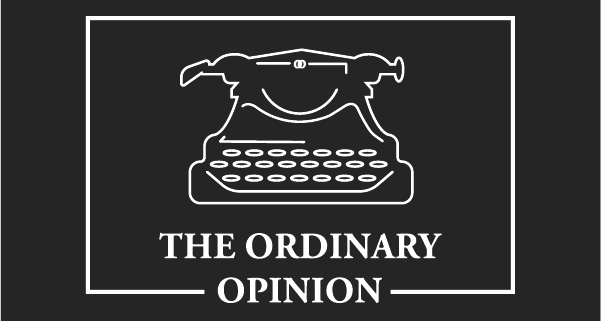I used to believe in the truth.
There’s a point in every argument where you’re certain of the win. It’s the entire reason you engage in arguments to begin with (unless you just like the sound of your voice). Nobody likes to lose, and you’re confident of victory because you have something the other person does not: The Truth. If you could just “tell them the truth.” If you just “break it down for them.” How could they not see reason?
I approach every conversation with the calm assurance that no matter the words exchanged, no matter how inferior my rhetoric, there is a backstop neither conversant will be able to get past. I will speak the truth, and set us both free. The truth is a catch-all, and is redemption for our less noble submissions. The truth is a great equalizer: if an idiot and a genius both call a meter 3.3ft, they are – on this subject – equal.
This is where some would, I expect, pivot into confession of the realization that truth doesn’t really exist; that all things are relative, and that what is “true” is too often a matter of perspective.
I won’t. Because I disagree.
There is absolute truth. It is provable and unassailable. That I am a man, for example, is a true thing. There is no “fresh perspective” or silent minority opinion that can change that. That I am under 6 feet tall is another. We might feel differently about it: you might tell me it’s unfortunate and I might tell you to jump a bridge, but my being “under 6 feet tall” would remain true.
Some truths are certainly bigger than others. For example, that we – all – have a problem with race. We have trouble understanding it, acknowledging it, and communicating about it. Even as the hurts get deeper and the body count continues to rise, the adults refuse to have adult conversations, hiding instead behind hashtag retorts and ignorance.
And it’s not because everything is relative and the truth of the matter isn’t available. The Sunday after Alson Sterling and Philando Castile were killed, my pastor explained in 5 minutes what most thinking people know: America cannot discuss race becasue the chief parties involved experience racism fundamentally differently.
He – a white southerner – explained that most white Americans understand racism as a set of actions perpetrated by a few bad apples. A lynching, for example. Because white Americans have neither experienced institutional racism as “the way things are,” nor conspicuously gone out and called anyone a nigger today, and probably have a black friend or two, they cannot immediately understand the cries of racism that accompany every ill-informed movie casting or utility debacle or police shooting. After all, they aren’t racist, are they?
Most black Americans will explain that racism is an institution, a reality created by over a century of deliberate policy decisions, judicial manipulation, lies, and – where necessary – outright violence orchestrated to maintain a status quo that benefits one group at the expense of several others. Because most “black” Americans experience the reality imposed by institutional racism daily, they cannot understand how anyone could possibly see the way things are and allow them to continue to be without being racist.
In my opinion, both perspectives are valid, but only one holds the truth. I’ve learned that this does not matter. All that matters is that the perspective that doesn’t hold the truth is also the more comfortable of the two. Forcing acceptance of the truth is too difficult; far less stressful (and guilt-inducing) is blindness.
#BlackLivesMatter is textbook truth clouded by perspective. I have not heard any BLM activists say Black Lives Matter “more,” or that not All Lives Matter. The movement seeks to draw attention to what is glaringly obvious injustice suffered by the black community at the hands of those entruted with its members’ lives. “Black Lives Matter” comes with an implied “too,” a plea that black people simply be afforded the rights and respect other communities are.
This truth isn’t a secret. It’d be pretty obvious on its own, but you can also find it on the internet. President Obama spoke about it on national TV. There’s even a meme or two about it . Still, many loudly reject it. In my opinion, it’s not because they don’t understand it. It’s because they don’t care. To picture protestors and other “theys” and “thems” as terrorists is a lot more comfortable. It’s also telling of America’s attitude towards difficult subjects and dissatisfied people: with difficult subjects, you have to force yourself to compromise. Once you label something a terrorist, you don’t have to. You can just shoot it.
Right now, they way people “feel” has been given a bigger microphone than the truth. An entire presidential campaign has somehow been built and sustained by appealing to the feelings of a large number of angry people…people who’ve been told they’re being cheated while being lied to about the “by whom” and the “what we can do about it.” It seems the further the statement made is from the truth, the greater the support for it.
I don’t think the reason the media refused to take Donald Trump seriously for most of 2016 and all of 2015 was because he’s a caricature of every pompous billionaire ever, or because of his foreign policy idiocy, or even because he speaks in stream-of-consciousness nonsense that – if given as an answer to a question in a job interview – should render him completely unhireable.
I think it’s because he lies. The things he says are simply not true. Unemployment is not “in the 40s,” we know plenty about Hillary Clinton’s religion, and “the blacks” do not love Trump. And so the media did what I cannot blame them for doing: they assumed that no one would take him seriously either. Somewhere between “Who would believe this shit?” and “Can you believe this guy?” is probably where the “elite” drew the lines around their dismissal of Donald J. The falsehood of a dodgy billionaire railing against special interests and corrupt politicians would eventually pay its own way out.
Despite wall-to-wall coverage (my personal favorite is a day on “Reliable Sources” with Brian Stelter that went something like “Today on Reliable Sources – Media bias in favor of Trump: Does the media give Donald Trump too much coverage? But first, we take you to a Trump rally…”) I don’t think the media can be blamed for creating Donald Trump. They didn’t create his rhetoric or draw out the crowds or punch protesters. That’s all Donald. But the media did abdicate responsibility for calling out bullshit. It was probably easy to do and to rake in the ratings dollars when the things he says were so obviously and repeatedly false. What is there to investigate when you call a square a circle?
I think they assumed the truth – provable, unassailable, internet-searchable – would speak for itself. They made the same mistake I did. Nobody cares about truth. Most people can’t handle the truth. Most people want the feels. They want confirmation.
And so a pastor will tell you Donald J. is sent by God. And Breitbart will tell you Jade 15 is pre-text for invasion of Texas. And Donald J. will tell you he didn’t pretend to be John Miller. And a former mayor will tell you BlackLivesMatter is racist. And I will show them all the “FactCheck” report. And they will all yell back “Benghazi!” And the truth will be powerless to stop them. And the body count will continue to rise.
Let every man be a liar.



